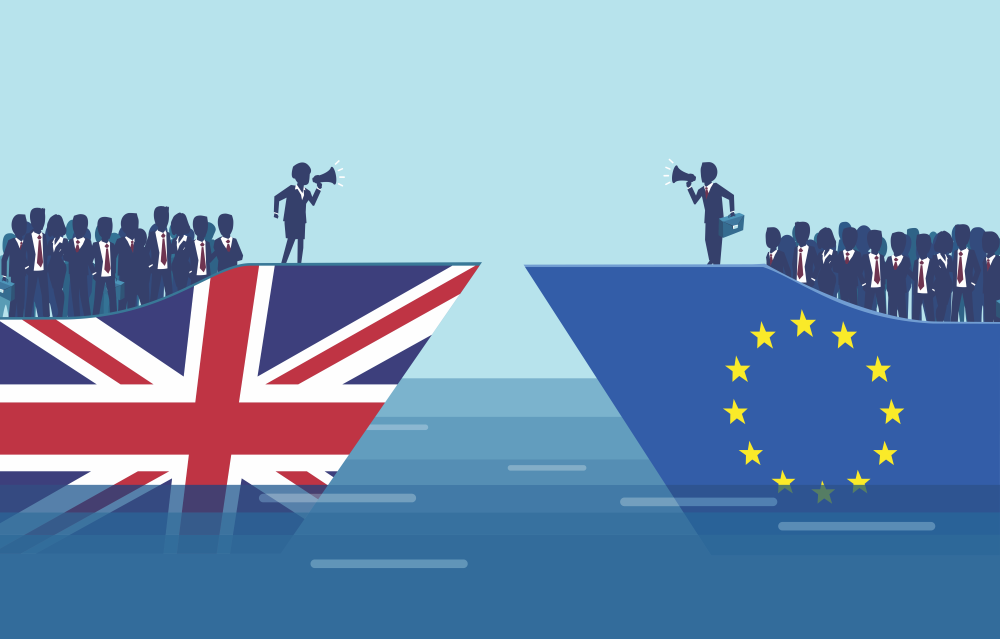
British business groups are calling on the government to “normalise” UK-EU trade five months after new customs rules and processes were introduced following the end of the transition period.
Prime Minister Boris Johnson has admitted that firms have faced “teething problems” adjusting to the new trade requirements, but dialogue has been ongoing between London and Brussels on how to ease the trade friction that has emerged.
Next phase
Tony Danker, the director-general of the Confederation of British Industry (CBI), told the FT that the “next phase of normalising relations” now needs to begin.
UK exports to the EU fell by over 40% in January following the end of the transition period, but did begin a recovery in February when increasing by 46.6% over the month.
Food and drink
Food and drink exports have been among the worst hit by the new rules, with exports down 40% year-on-year for February.
Yesterday (28 April), a Defra committee of cross-party MPs released what BBC economics editor Faisal Islam described as a “bruising report” which said “considerable trade friction” had emerged for the sector, particularly firms exporting seafood and meat.
The report said that businesses faced “substantive and enduring” new costs.
'Stop prevaricating'
Dominic Goudie, the head of international trade at the Food and Drink Federation (FDF), told the FT that both the UK and EU needed to “stop prevaricating” and find solutions.
“The customs co-operation and rules of origin committee needs to be directed to find urgent solutions to ensure the Trade and Cooperation Agreement doesn’t shut out small businesses,” he said.
Ratification
The call for solutions from both the EU and UK came as MEPs voted to ratify the EU-UK Trade and Cooperation Agreement.
While leaders have hailed the deal for including zero tariffs and quotas across all product lines, firms have struggled to get to grips with its rules of origin chapter, containing the conditions that must be met to continue trading with the EU without having to pay customs duties.
The deal also does not remove the need for customs declarations and other documentation to be completed for goods to move between Britain and the EU.
Ongoing dialogue
The UK and EU continue to negotiate over the details of their future trading relationship – particularly around the implementation of the Northern Ireland Protocol, sanitary and phytosanitary checks and services trade.
One outstanding issue that has been resolved, however, is the granting of diplomatic status to the EU’s new ambassador in London.
The Times reports that the government will now formally recognise João Vale de Almeida – the EU’s first ambassador to the UK – for the first time since the UK completed its split from the bloc at the end of last year.

